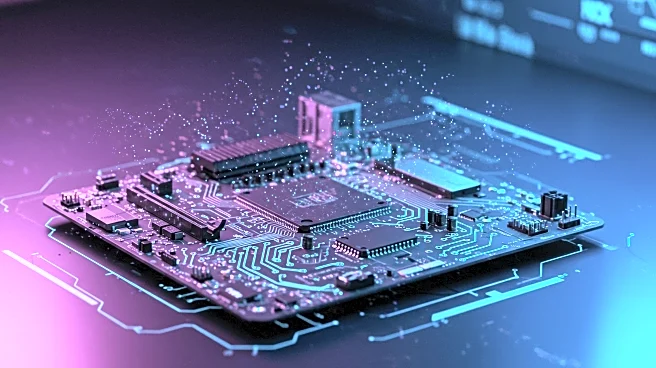What's Happening?
OpenAI has released its latest AI model, GPT-5, which follows the successful launch of GPT-4. Despite expectations for significant advancements, GPT-5's improvements over previous models appear modest. OpenAI claims enhancements in programming, mathematics, writing, and visual understanding, with reduced instances of AI 'hallucinations.' However, public benchmarks show only slight improvements compared to other leading models, such as Anthropic's Claude and Google's Gemini. This has led to discussions about the need for new approaches in AI development to achieve more substantial progress.
Why It's Important?
The release of GPT-5 highlights the challenges facing the AI industry in achieving significant breakthroughs. The modest improvements suggest that current AI development strategies may be reaching their limits, prompting a reevaluation of how AI systems are designed and trained. This has implications for industries relying on AI for complex tasks, as well as for the competitive landscape among AI companies. The need for innovation in AI development is critical to maintaining momentum and achieving the transformative potential of AI technologies.
What's Next?
The AI industry may explore new methodologies and technologies to overcome the limitations observed with GPT-5. Companies could invest in research to develop more efficient AI models and explore alternative training techniques. The competitive nature of the AI market will likely drive continued innovation, with companies striving to achieve breakthroughs that set them apart. Additionally, OpenAI and other developers may focus on improving the cost-effectiveness and accessibility of AI models to enhance their adoption and impact.
Beyond the Headlines
The challenges faced by GPT-5 underscore the broader difficulties in AI development, particularly in balancing performance improvements with cost and resource constraints. The industry's reliance on large language models may necessitate a shift towards more diverse and adaptable AI systems. As AI continues to evolve, ethical considerations, such as transparency and accountability, will remain central to its development and deployment.









